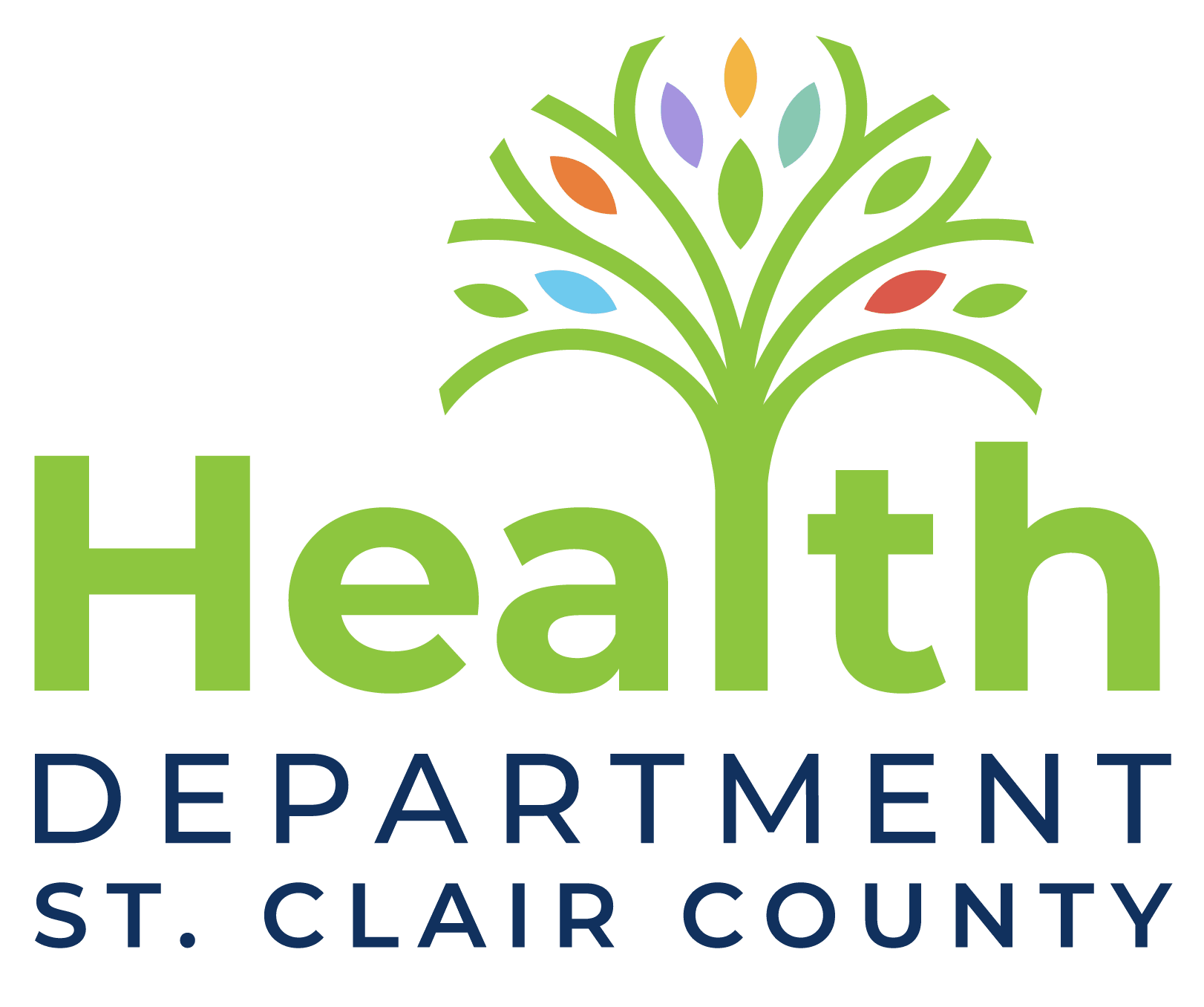
For Health Professionals
Reporting Communicable & Infectious Disease
Per Illinois Administrative Code, St Clair County health professionals, school staff, food service management, transportation personnel and any other person having knowledge of a known or suspect case, or carrier of a reportable communicable disease or communicable disease death shall report the case, suspect case, carrier or death in humans to the local health authorities within the number of hours or days indicated.
The IDPH Reportable Disease Poster outlines the conditions that must be reported to St Clair County Health Department in accordance with Illinois Law, and the time frame in which reporting must occur: immediately, within 24 hours or within seven days. This document also lists the appropriate telephone number(s) to call to make a report.
For the additional guidance for school nurses, see the Illinois Department of Public Health’s School Health Listing of Communicable Diseases (PDF).
School Absenteeism Reporting System
Our online School Absenteeism Reporting System helps us to keep track of influenza-like illness in our schools. To report potential public health threats in St. Clair County schools, please complete the survey: HERE
Reportable STDs
- Syphilis
- Gonorrhea
- Chlamydia
- Chancroid
Reporting Requirements
Health professionals are REQUIRED to report ALL reportable STDs to St. Clair County Health Department (SCCHD), as soon as possible and within 7 calendar days after diagnosis or treatment. The number for reporting STD cases is: (618) 233-6175 and request the STI staff person. SCCHD will submit this information to the Illinois Department of Public Health. If the health care professional diagnoses or treats a reportable STD in a city governed by SCCHD, the STD report shall be sent to SCCHD.
FAX # 618.233.9356
Per Illinois Administrative Code, reporting should include the following as applicable:
- The name, address, and telephone number of the health care professional
- The date of the report
- The STD-infected individual’s name, address, telephone number, date of birth, race, ethnicity, sex, and pregnancy status
- The diagnosis, diagnostic classification, and any laboratory findings
- The medication name and dosage that the individual is receiving, has received, or will receive, and whether treatment has been completed
Treatment Guidelines
Current recommendations for the treatment of STDs are found in the CDC’s Sexually Transmitted Infections Treatment Guideline, 2021 https://www.cdc.gov/std/treatment-guidelines/default.htm
In conjunction with SCCHD, providers are responsible for prescribing an appropriate medication regimen and ensuring patient safety, adherence, and completion of treatment.

TB Reporting Requirements
Health professionals are REQUIRED to report ALL (pulmonary and extrapulmonary) suspected and confirmed cases of TB to St. Clair County Health Department (SCCHD), the local TB control authority, as soon as possible and within 7 calendar days. The number for reporting TB cases is: (618) 233-6175 and request the TB staff person. SCCHD will submit this information to the Illinois Department of Public Health.
FAX # 618.233.9356
Per Illinois Administrative Code, reporting should include the following as applicable:
- Diagnostic information (dates and results of screening tests, bacteriologic examinations and chest radiographs)
- Clinical management information (determination of infectious or non-infectious status, isolation precautions taken, treatment regimen, serious adverse medication reactions)
- Surveillance information (demographic and locating information, substance abuse, occupation)
- Any other relevant information requested by SCCHD (hospital discharge plans, all persons considered for contact investigations)
Treatment Guidelines
Current recommendations for the treatment of TB are found in the Official American Thoracic Society/Centers for Disease Control and Prevention/Infectious Diseases Society of America Clinical Practice Guidelines: Treatment of Drug-Susceptible Tuberculosis from 2016.
In conjunction with SCCHD, providers are responsible for prescribing an appropriate medication regimen and ensuring patient safety, adherence, and completion of therapy using DOT.
Treatment should be done by or in consultation with a physician experienced in TB management, especially in situations involving drug resistance, patients who are persistently culture positive, treatment failure, significant treatment interruptions, severe adverse reactions, social or behavioral circumstances requiring additional expertise, cases involving patients with HIV, severe liver disease or organ transplants, and rare forms of extrapulmonary TB. SCCHD physicians provide this expertise.
Diagnostic evaluation for TB should include but not be limited to:
- Medical history, physical examination, TB screening test, chest radiograph, bacteriologic examination on available specimens, and an assessment of risk for HIV infection.
- Infection control measures should be initiated with any suspect or active cases of pulmonary TB until they are medically determined to be non-infectious.
